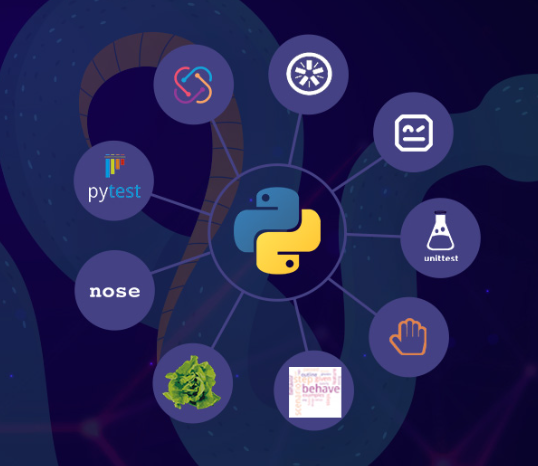Unit testing is a crucial part of software development as it helps ensure the correctness and reliability of your code. Python provides several testing frameworks that make it easy to write and execute unit tests. Let’s explore some popular Python testing frameworks:
- unittest:
unittest is Python’s built-in testing framework, inspired by the testing frameworks in other programming languages. It offers a rich set of features for writing and running tests, including test discovery, test fixtures, test runners, and assertions. Key features of unittest include:
- Test Cases and Test Suites: Tests are organized into test cases, which are collections of individual test methods. Test cases can be grouped into test suites for better organization.
- Test Fixtures: unittest supports the use of test fixtures, which are methods that run before and after each test method. This allows you to set up and tear down the required environment for your tests.
- Assertions: unittest provides a wide range of assertion methods for verifying expected behavior in your tests. These assertions include checking for equality, inequality, exceptions, and more.
- Test Discovery: unittest can automatically discover and run all test cases in a directory or package using the
discovercommand.
- pytest:
pytest is a popular testing framework known for its simplicity and powerful features. It offers a more concise and expressive syntax compared to unittest. Key features of pytest include:
- Automatic Test Discovery: pytest automatically discovers and runs tests in the current directory and its subdirectories. Tests can be written as regular Python functions, allowing for easy integration with existing codebases.
- Fixtures: pytest provides a powerful fixture mechanism for managing test resources and dependencies. Fixtures can be used to set up the required test environment and provide reusable test data.
- Assertions: pytest offers a rich set of built-in assertions, including the standard assertions from unittest and additional custom assertions.
- Test Parametrization: pytest allows you to parameterize tests, enabling you to run the same test with different inputs or configurations.
- Plugins and Extensions: pytest has a large ecosystem of plugins that provide additional features and integrations with other tools. This allows you to customize and extend pytest according to your specific testing needs.
- nose2:
nose2 is a test runner and extension to the unittest framework. It aims to provide a more convenient and feature-rich testing experience compared to the standard unittest. Key features of nose2 include:
- Test Discovery: nose2 automatically discovers and runs tests in a directory or package, similar to pytest. It provides more flexible test discovery options, such as pattern matching and selective test execution.
- Plugins and Extensions: nose2 supports plugins that provide additional testing features, such as code coverage analysis, test profiling, and test generation.
- Test Fixtures: nose2 supports the use of fixtures for setting up and tearing down test resources.
- Test Configuration: nose2 allows you to define test configurations using configuration files or command-line options, providing flexibility in test execution.
Each testing framework has its own set of features and conventions, so you can choose the one that best fits your project’s requirements and your personal preference. Regardless of the framework you choose, writing unit tests is essential for maintaining code quality, detecting bugs early, and ensuring the stability of your Python applications.



